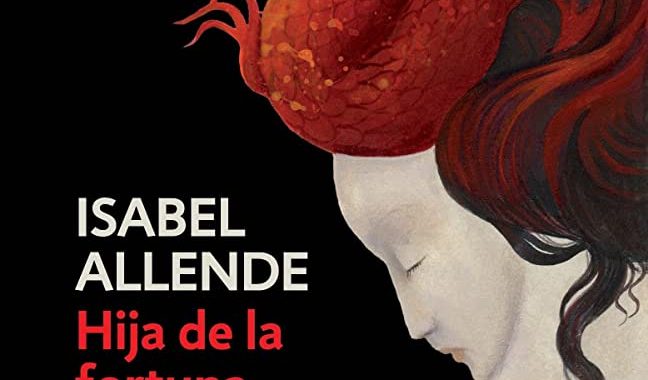Relative Genitive is a brilliant book, presenting the original work of poet-translator Val Vinokur, alongside his translations of works by two of the 20th century’s most influential Russian poets, Osip Mendalstam and Vladimir Mayakovsky. Seriously, full of tasty sounds and bright woven text, simply brilliant. I should know, I was Val Vinokur’s student for two years. He teaches at the New School: a literature seminar to undergrads, focused on Russian works; and a translation workshop, with undergrad and graduate students side by side. I had the pleasure of joining the latter class. In it, each student is asked to bring a sizeable work of literature (a novel, a collection of poems, anything) and spend the next four months translating it from it’s source language, into the target language, the one we all in the classroom share, English. It was in this class where Vinokur shared his passion for language, words, individual sounds, and their endless-boundless-limitless possibilities. Two parts play, three parts theory, but mostly fulfilling our writer’s duty as ghosts, to haunt multiple languages, to bring back to life the lost works of our greatest literary heroes.
My professor’s latest book caught my attention when I found out he was co-hosting an evening of performances and drinks in the heart of Brooklyn, at the local book store, Molasses. I went. I bought the book. I listened and enjoyed, as always, Val’s unceasing humor, wit and insight, as he read. On the stage, of note, was his partner also debuting a collection of original+translated work by Johnny Lorenz (of Mario Quintana), released by Poets and Traitors, of … But enough, you can find our more here, here and здесь…
… this post is a review, right? So let’s review.
I could quote myriad passages, show in precise detail the exact passages weaved between the three authors contained of this collection, assert a plethora of extrapolated meanings from intricate literary devices. But it would only be a disservice to the reader who would prefer to discover them on her own, not to mention make me sound less pedagogical, more pedantic (Imagine if I misread something and then shared it with you, dear god!) So all I will do here is point to the cover page.
It might be helpful, before reading the collection, like when “analyzing” any poem, to begin by unpacking the meaning of its title. But first you should know who the book is dedicated to. (Turn the page.) It is dedicated to Vinokur’s French-speaking Brooklyn boy, Mark Elia. “He already reads me like a book,” jests Vinokur. “This is in case he might someday grow curious about the footnotes.”
Genitive, in grammar, relates to a case of nouns and pronouns demonstrating possession or close association. (Pens out, please.) The word “genitive” comes from the Latin for “beget” (“gingnere”), also “genitivus” (for case expressing possession, course, or origin). “Gene” shares the same root. Grammatically, in English this is as easy as putting an <‘s> at the end of a name, or adding <his>, or combining nouns with <of>, like in the first sentence of this post, or the very clause before this one. In Russian, Vinokur’s mother tongue, you show how people and things are related with a little more sophistication. From Master Russian (http://masterrussian.com/
The nouns in the genitive answer such questions as Кого? Чего? (Of whom? Of what?).
Это книга чья? Это книга Лены. This book is whose? This is Lena’s book.
The main role of the genitive is to show where the person or thing belongs to or what it relates to. For example: крыша дома (the roof of the house), пачка чая (the pack of tea).
You see where this is going? “Relative Genitive” in the title isn’t just a rhyme, or a specific grammar point, one that Vinokur and all of us balancing multiple languages have had to internalize. The very nature of the purpose of this book (of, of, of!) we should keep in mind when reading is that this is a book from a father to his son, two close relatives, the most important pair between people (say, after mother-child, of which this book is also full, or lovers).
The moments that exemplify the parent-child motif are the Greek allusions. In “Learning To Love,” we get an Icarus; later on in the collection, his father Daedalus. In “Ariadne,” we get, well, an Ariadne, sister of the Minotaur, daughter of Minos. But most powerful of all, we get shots of Homer’s epic, the one about the father lost at sea and the son who must find him. What better way to echo the themes of Father and Son, of quest for language, than with the Odyssey? See “The Deadliest Catch” by Vinokur, paired with the Mendelstam poem singing of how “Homer is silent, while the black sea, oratund, roars soft…”.
To paraphrase my Odyssey’s professor at the New School, Melissa Monroe, the biographical information of any author may prove interesting to the curious reader, but it is not absolutely necessary to the understanding of a timeless work: instead, would it satisfy the reader to know about Vinokur’s family history immigrating to the United States, one might wear the lens of biography for “Trista of Count Sheremetiev II,” about a missing father (Odysseus), or “Pigeon Milk” about visiting a father in another country, wherein, he writes: “…like a prodigal patriarch, Father asks: What the devil have you been doing over there?” both narrator and parent are at once distant and distancing, at once reaching and pulling back the other.
You’re going to have to read the collection, read how Vinokur tells his own story, shares it with his son, with us, see how he complements his works with the poetry of Mayakovsky (please, pretty please, see his “Tristia” or “Leningrad” that sings of coming “back to my city, familiar to tears”) and Meldalstam (don’t miss his “Stalin” poem, which got him sent to death by gulag, paired with Vinokur’s “Pmurt Dlanod” poem that reads: “If he says his name backwards surely one of us will disappear”).
So much more to say. So much more. But this is a good start. Ah.




